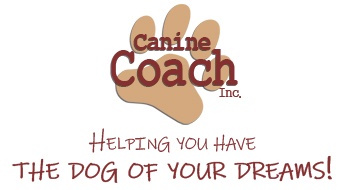Promoting Healthy Play (Part 1 of 3)
Puppy and adult dog play can often be troubling to watch if you don’t know what to look for. “Is Fido really having fun? Because that doesn’t look like fun if I were the one playing!” I regularly have clients ask me during Puppy Play Time what appropriate dog play looks like and if their dog is playing too rough or playing with some other dog that is too rough. To help you teach your puppy or adult dog to play nicely with others, here are some definitions and guidelines on healthy dog play.
Each dog has his own preferred way to play, but most dogs fall into two play style categories: wrestling and chasing. Wrestling dogs will topple each other to the ground, jump up on, and bite each other. Usually breeds like labs, boxers, and other rambunctious and physically bigger and stronger individuals like to play this way. Herding breeds often like to play chase, the second play category, and will stalk and chase their friends, sometimes nipping at their heels. Both play styles include some barking and growling, though the exact amount depends on the individual dog and how much fun or frustration he is experiencing. Another play style I won’t go into detail here, but still want to mention, is what I like to call “bitey face.” This is where each dog lays on the ground and bites at the other dog’s face with soft bites.
Regardless of the play style, healthy play begins the same. In our playgroups, we watch for play initiation signals like a high-pitched bark, bouncing at the other puppy, pawing, and the classic play bow. These signals tell the other puppy or adult dog “Yes, I want to play!” and may be responded to with a pounce to begin wrestling or a scamper to begin the chase. It’s important to look for both dogs asking for and agreeing to play before the play actually begins to make sure both dogs are having fun and no one is overwhelmed. This reciprocal play is the hallmark of healthy dog play.
Next week I’ll cover confidence, over arousal, and ways you can manage your pup’s play. (You can find Part 2 here.) Feel free to ask me, or one of my trainers, any questions you have concerning dog play or any training topic by asking us in class, emailing info@yourcaninecoach.com, or by calling (719) 200-2636.
